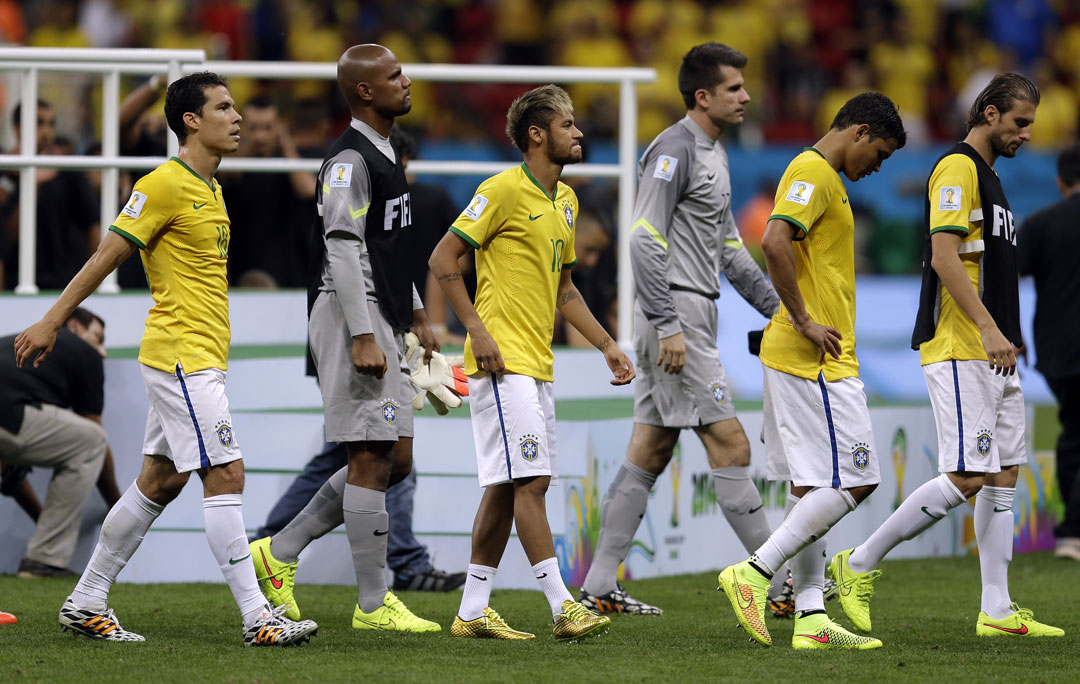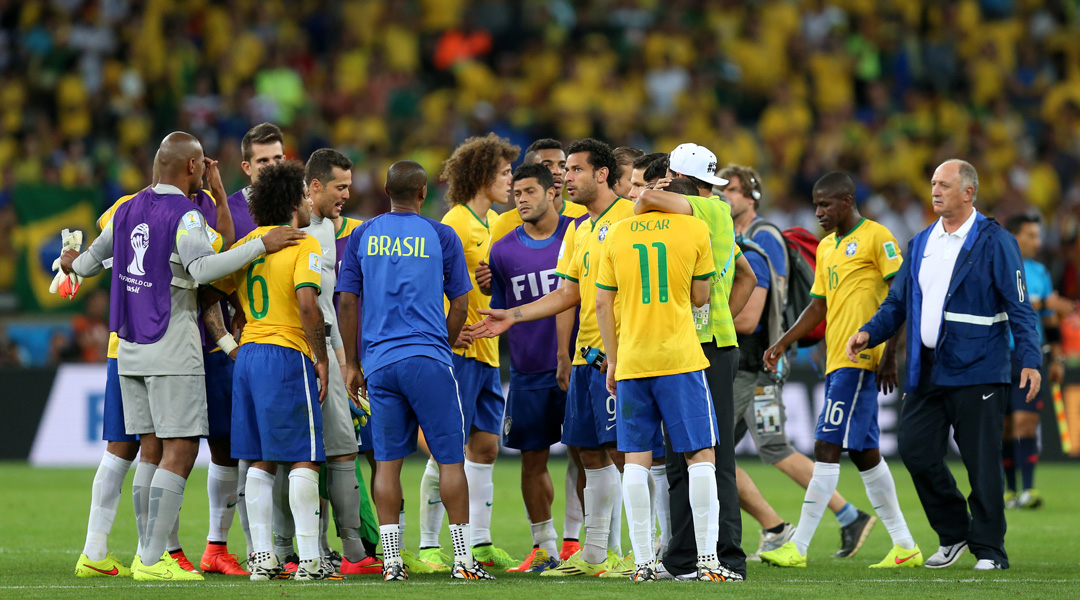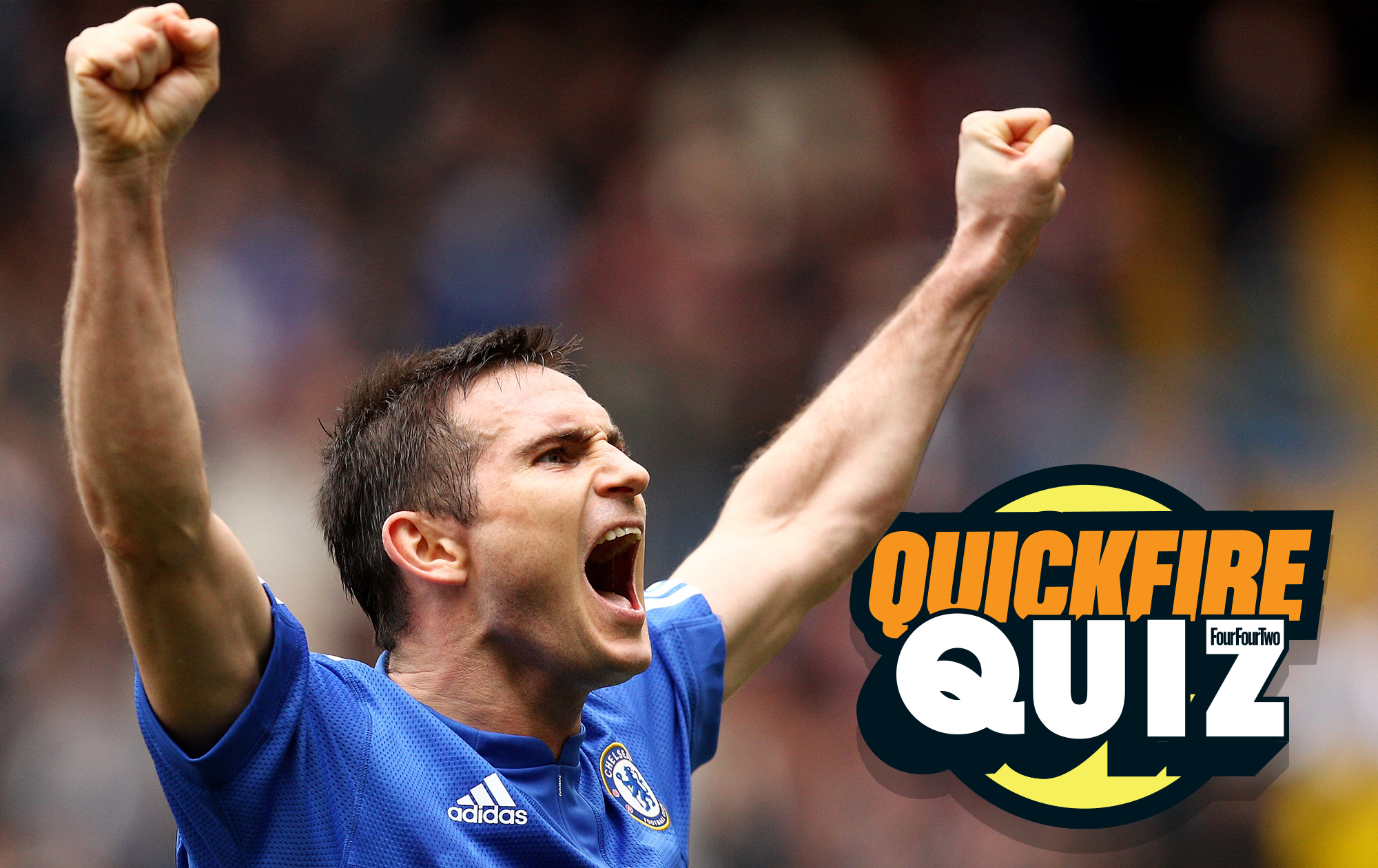Year Zero: Brazil may want to copy trendy European models, but they can't afford to
Mauricio Savarese looks at the fallout from Brazil's World Cup campaign and wonders whether the 7-1 defeat to Germany might in fact be a spark for positive change...

Down with spoiled players, the patriarchal coach, his assistant, his medics, his press officer, the defensive mindset, whoever is in charge of the academy system, agents, European clubs, FIFA, the national FA, the official Brazilian broadcaster, the media, Ronaldo, the a capella anthem, the football psychologists, the protesters, the boring chants in the stadia, the elitists, the president, the governors, the mayors and, at last, down with six-minute blackouts.
Seleção fans have made a huge list detailing the things they want to change before Russia 2018. Amazingly enough, some of those things were not long ago cited as reasons they won two World Cups in 1994 and 2002.
Contrary to widespread critical opinion, Brazilians were never pining for 1970 this summer. They knew hosting the tournament could play a massive role in the quest for the holy grail, but no one actually thought Fred was a good candidate to be the next Jairzinho or that Rivelino was hiding somewhere on Oscar’s feet. What they surely didn’t expect was to be so brutally outclassed by Germany in the semi-finals.
Although some problems have been visible for decades, it is the hammering that puts pressure on the Seleção to change it all, from youth teams to their national championship. But a massive overhaul is nearly impossible.
Scolari out
The first and most obvious change was doable and is called Luiz Felipe Scolari, who had massive support for lifting the trophy in 2002, but lost all the backing he had in the media, from the public and even among the players – some in private, some quite openly.
The Brazilian FA has always changed coaches between World Cups - although Mexico 70 winner Mario Zagallo did survive all the way to West Germany in 1974. But waving goodbye to Big Phil and his World Cup-winning assistant Carlos Alberto Parreira as soon as the tournament ended was key to demonstrating that Brazil understands the need to rebuild.
The best features, fun and footballing quizzes, straight to your inbox every week.

The roadmap is unclear, though. If frontrunner Tite had taken over (as opposed to Dunga, whose arrival is expected to be announced on Tuesday) the Brazilian FA could have been seen as making a safe choice: modern, but not a significant break with the past since 1990 – when Brazilians finally came to understand that jogo bonito wouldn’t win them any trophies. And there's the trouble.
Brazilian officials know they can't see the yellow shirt lose even more respect in the upcoming fixtures: friendlies against Colombia and Argentina later this year, the Copa America in summer 2015 and then, from next October, the qualifiers for the 2018 World Cup. Yet they are on the spot until better football displays come back.
Global losses
Some Brazilians think a foreign coach could help them bring their style back, even more than winning. When Mano Menezes was fired in late 2012, Pep Guardiola apparently let the Brazilian FA know he would take the job; polls showed support for him would be huge, but the FA decided to maintain the tradition of never hiring a foreign coach.
Though Dunga is now likely to be the man, desire for a foreign coach shows the Brazilian public has been aware of big issues with the team; it goes beyond organisation, it is a matter of putting talent ahead of effort. The roots of this are surely in Scolari's and Parreira's victories, since youth teams have created more Luiz Gustavos and Hulks than Neymars in the last 20 years. Changing that will demand more than players who don't fold under pressure.
That's where things get difficult for Brazilian football: it's the economy, stupid. Many clubs owe millions in tax and old debt and would be bankrupted if they were companies; they sell players to survive, and Next Big Things go for high prices. Academies don't make Neymars every day, but they produce 10 Dantes every year. It's either that and a poorer Brazilian championship or nothing.
That’s Brazil’s problem and potentially Brazil’s salvation: they can’t copy European models. Like Argentina, they can’t afford it.
Those very physical Brazilian players who burst into tears before the whole planet during the World Cup are the privileged ones: 19 of the 23-man squad (bar Fred, Jo and two reserve goalkeepers) play abroad. Since a draining deal with dominant broadcaster TV Globo sends domestic footballers to the pitches every weekend and midweek all year round, domestic teams need players built for endurance and strength, preferably tall ones so they don't concede from set-pieces and crosses – few Brazilians can do the tiki-taka or the jogo bonito anyway. If you think that sounds boring, Brazilian fans agree. That's why attendances are low.
How will Brazil cope with the need to win again and do it in style? The 7-1 beating might have created the opportunity for some of those challenges to be faced. Still, the future isn’t so terrible for a group of players that will be more experienced in four years' time and could surely win – Neymar, Thiago Silva, David Luiz, Marcelo, Paulinho, Oscar, Hernanes, Lucas Moura, Philippe Coutinho…
Brazilians are certainly blaming everyone for their defeat, but the embarrassing Mineirazo doesn’t mean the end of the world for the only team to have five stars on their shirt.
SEE ALSO IN YEAR ZERO
- How Germany restructured itself, and why it couldn't work elsewhere
- Spain need pruning, not root-and-branch reform
- Italians just want a new coach, not new methods after dismal World Cup
- Ronaldo keeping Portugal afloat for now, but big trouble lies ahead
- Klinsmann given time to work quietly as 'soccer' returns to middle pages
